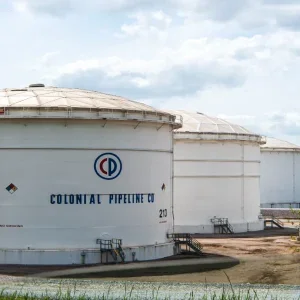The arbitration proceeding has been commenced before the Permanent Court of Arbitration in The Hague under the Rules of the United Nations Commission on International Trade Law.
Chevron’s claims relate to the lawsuit currently pending against the company in Lago Agrio, Ecuador, where Chevron’s subsidiary, Texaco Petroleum Company participated until 1992 as a minority member of a consortium that explored for and produced oil under contracts with Ecuador and Ecuador’s government-owned oil company, Petroecuador. Through the filing, Chevron seeks to enforce prior settlement and release agreements that the government of Ecuador entered into with Texaco Petroleum when the consortium was terminated, and to hold Ecuador accountable for its obligations under Ecuadorian law and existing international treaties.
“As has been widely recognized, the government of Ecuador has seriously diminished the independence and integrity of its own judiciary. The government is using the legal process in Lago Agrio to avoid the environmental obligations of its state-owned oil company,” said Hewitt Pate, Chevron’s vice president and general counsel. “Because Ecuador’s judicial system is incapable of functioning independently of political influence, Chevron has no choice but to seek relief under the treaty between the United States and Ecuador.”
After its participation in the consortium ended in 1992, Texaco Petroleum negotiated a settlement agreement with Ecuador and Petroecuador whereby Texaco Petroleum assumed responsibility for specified environmental remediation projects in proportion to its minority ownership interest. In 1998, after the requisite remediation work was performed and independently validated, Ecuador and Petroecuador released Texaco Petroleum and its affiliates from further liability. Ecuador assumed responsibility for any remaining impact caused by the consortium’s pre-1992 activities as well as any future impact caused by Petroecuador’s own ongoing operations in the former concession area. Since Texaco Petroleum’s departure, Petroecuador has drilled over 400 new wells in the concession area, compared to the 321 wells that were drilled during the consortium. Compounding the situation, Petroecuador’s environmental record as an operator has been notoriously poor, with more than 1,400 oil spills since 2000 alone.
The current Ecuador lawsuit is an effort to force Chevron to pay for Petroecuador’s own misdeeds. In collusion with trial lawyers suing Chevron, the government of Ecuador has violated its contracts with Texaco Petroleum as well as protections afforded to investors under the United States-Ecuador Bilateral Investment Treaty:
Ecuador’s President has publicly committed to support the plaintiffs;
Representatives of the Attorney General’s office have conspired with plaintiffs’ lawyers to undermine the integrity of the 1995 and 1998 contracts;
Ecuador’s Prosecutor General has manufactured illegitimate criminal indictments against Chevron counsel, and
The judge presiding over the trial has publicly revealed his bias and pre-judgment of the case in media interviews and recorded meetings with individuals who had been solicited by officials of Ecuador’s ruling political party to pay a bribe in exchange for the award of contracts to be funded with the proceeds of an anticipated verdict against Chevron.
“Chevron’s filing today should not come as a surprise. The overt conduct of Ecuador’s government and judicial branch disregards Ecuadorian law, international obligations, and Chevron’s basic right to a fair hearing,” Pate added. “Ecuador’s actions violate Texaco Petroleum’s agreements with Ecuador as well as the Bilateral Investment Treaty’s guarantee of fair and equitable treatment for U.S. investors.”
Chevron is not alone in highlighting the demise of Ecuador’s judiciary as well as the government’s hostility towards foreign investors. In February 2009, the United States Department of State released its Investment Climate Statement for Ecuador which states, “Systemic weakness and susceptibility to political or economic pressures in the rule of law constitute the most important problem faced by U.S. companies investing in or trading with Ecuador.” The report goes on to state that “Corruption is a serious problem in Ecuador,” and that, “The courts are often susceptible to outside pressure and bribes. Neither Congressional oversight nor internal judicial branch mechanisms have shown a consistent capacity to effectively investigate and discipline allegedly corrupt judges.”






